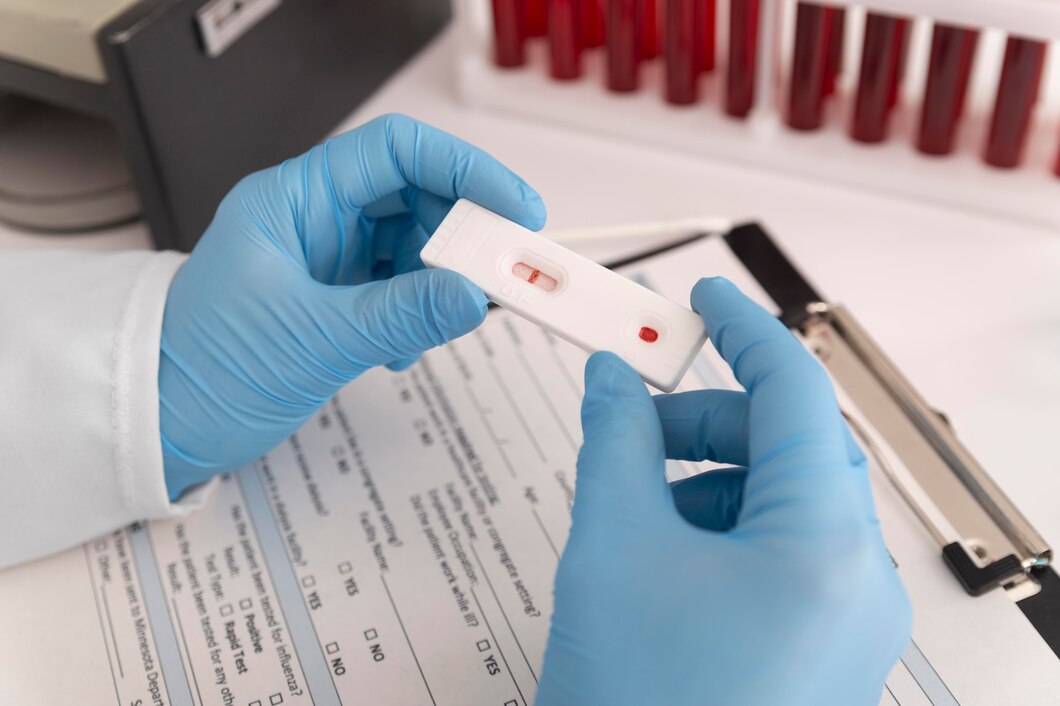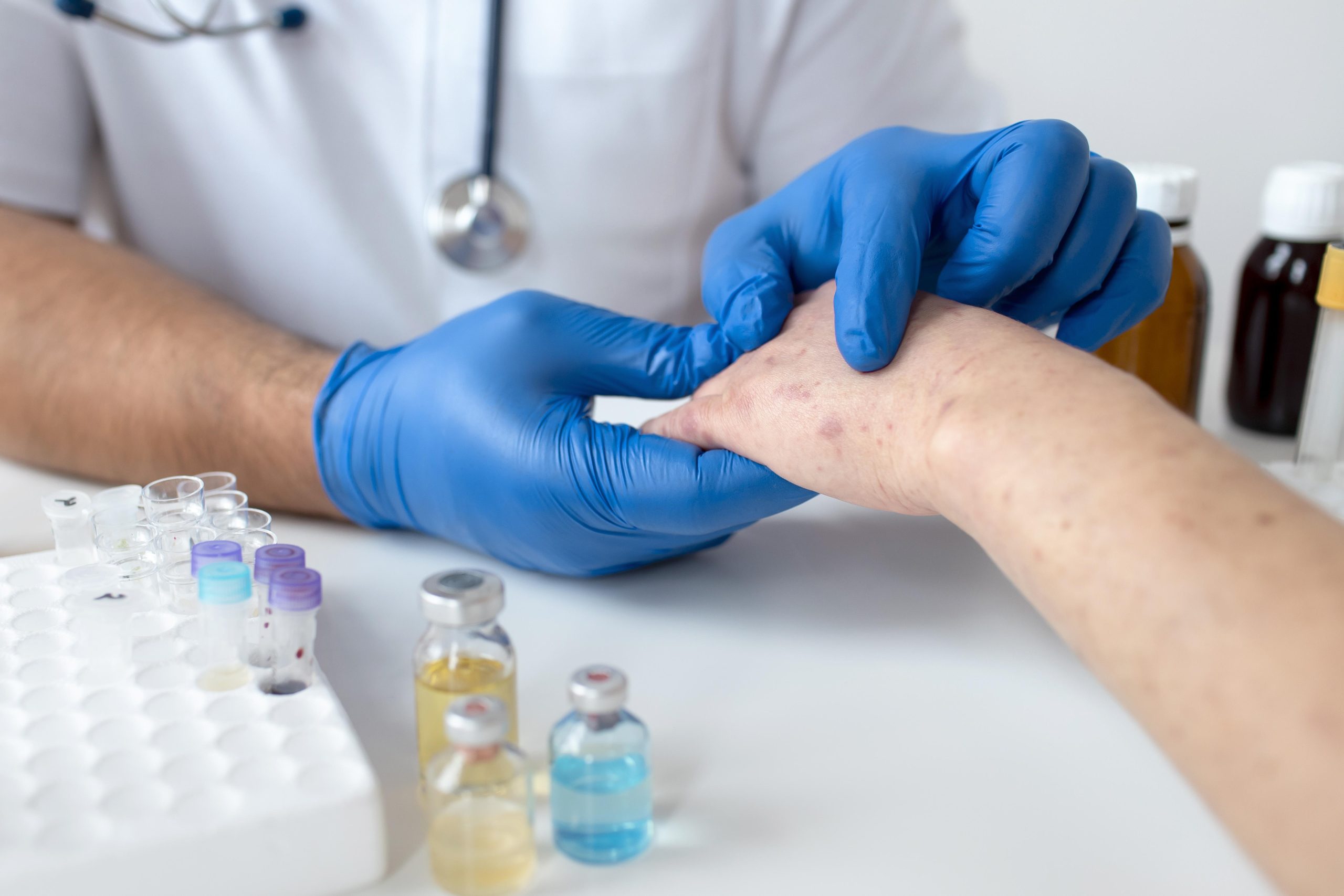Your lab results may seem like an alien language; full of figures, abbreviations and medical terms. It’s so alien that it makes one long for his doctor to just tell him what it means. Nonetheless, understanding these results is very important if one wants to manage their health effectively.
At Absolute Urgent Care we understand the significance of having access to precise and dependable health information about your body. We will look at some of the most common laboratory tests in this entry; describe the results and offer practical suggestions on how you can talk about them with your doctor.
Table of Contents
ToggleImportance of Understanding Lab Results
It is easier for you as an individual involved in decision making relating to healthcare when you are able to interpret numbers generated during laboratory testing appropriately. Besides, it helps one to be able anticipate any emerging conditions before they become fatal hence taking early measures towards better health outcomes. Many people find reading their lab results confusing but by knowing one or two things about them you will be able to understand and make use of them as you are supposed.
The Basics of Lab Results
Most lab results have a reference range which provides the normal range for such specific tests. Knowing what these ranges mean is the first step towards interpreting your results effectively. The reference range may vary depending on issues such as age, sex and overall health thus all this should be taken into consideration while looking at your results.
Reference Ranges
These are values that are considered normal for healthy individuals by the laboratory. Based on factors such as age group, gender or medical background history amongst others these ranges may differ significantly. For example , an adult’s normal blood sugar level might not be similar to that of a child.
Units of Measurement
Lab results often come in various units of measurement such as milligrams per deciliter (mg/dL) or international units per liter (IU/L). These units help in interpreting what the findings indicate and seeing how they fit within reference limits.
Flags and Indicators
In some cases, lab results may contain flags or indicators to show that some values are outside the normal range. These flags can help you quickly identify areas that may require further attention or follow-up with your healthcare provider.
Common Blood Tests and What They Reveal
Blood tests are among the most common lab tests and can provide a wealth of information about your health. Some common blood tests you might have heard about include:
Complete Blood Count (CBC)
A CBC measures different components of your blood, including red blood cells, white blood cells, hemoglobin, hematocrit, and platelets. Each part plays an important role in maintaining good health.
Red Blood Cells (RBCs): Cells which carry oxygen from lungs to the rest of the body. Unusual amounts in circulation can be caused by anaemia or other haematological problems.
White Blood Cells (WBCs): Immune system’s defense against infections. Increased numbers may indicate presence of infection; reduced numbers could imply weak immune systems.
Hemoglobin and Hematocrit: Oxygen-carrying capacity revealed by these measurements. Low levels often suggest anemia while high levels may imply dehydration or other medical conditions.
Platelets: Help in clotting of blood. Too much or too little can mean bleeding disorders or other illnesses.
Basic metabolic panel (BMP)
This is a test that measures different substances in the blood for instance glucose, calcium and electrolytes. This panel shows how well the body’s metabolism is working.
Glucose: Diabetes if too high, hypoglycemia if too low.
Calcium: Abnormal levels of it affect various organs such as bones or kidneys.
Electrolytes: They are sodium, potassium and chloride. When abnormal levels of these elements occur, it may also affect the heart, muscles or even nerves.
Lipid Panel
A lipid panel measures different kinds of fats found in your blood such as cholesterol and triglycerides. For example these tests can help to determine whether you are at risk for heart disease.
Total Cholesterol: Large amounts of total cholesterol may increase the risk for heart disease.
LDL (Low-Density Lipoprotein): Also known as bad cholesterol which high amounts cause plaque accumulation inside arteries leading to atherosclerosis.
HDL (High-Density Lipoprotein): It is called good cholesterol; so if there are high values then chances are less likely that one will suffer from heart attack.
Triglycerides: Excessively high levels of this indicate you have an increased likelihood experiencing myocardial infarction.
How to Interpret Your Lab Results
It’s not always easy to decode lab results. These hints may help make sense out them and discuss with your doctor:
Compare to Reference Ranges
Start with reference ranges provided by laboratory scientists who know when something falls outside its boundary lines where no mistakes will be tolerated.” If they go beyond reference range limits suggested by laboratory scientists themselves who know what lies outside the boundary lines where no mistakes are allowed”, these values may be outside normal range.”
Consider Your Overall Health
Remember that lab results don’t tell everything about you. Therefore when interpreting these results consider other factors like general health status, medical history or symptoms experienced during that period.”
Consult with Your Healthcare Provider
If you are concerned about anything or your lab results aren’t quite right, don’t hesitate to contact your health care provider. They will guide you through the interpretation process and advise on the next steps.
The Role of Absolute Urgent Care
At Absolute Urgent Care, having to wait for the test result is scary but it’s also a language-clarifier and a precision-explainer. With assistance from our well-informed staff members, we can assist you in interpreting your lab work further than that; however, we will be able to generate some approaches which may help with any issues that may develop.
Frequently Asked Questions on Lab Outcomes
What if my lab results are not normal?
Should your lab figures be out of range, it is advisable to consult a doctor. Your clinician will explain these results, and where necessary, provide treatment options or advice for changing lifestyle.”
How often do I need lab testing?
The frequency of laboratory tests depends on one’s age as well as overall medical history. In this regard, therefore, your doctor may propose a testing schedule that suits you most.”
Can I get hold of my lab findings?
Definitely, anyone can access his/her personal laboratory results provided there is formal communication with either labs themselves or the clinics which handled such materials at this point.”
Key Takeaways
It is important to understand what your test results reveal about you for purposes of making adjustments when needed; even early detection followed by further discussions could help improve them later on down line once misinterpreted! Absolute Urgent Care Company will be together with us throughout to accomplish this.
Lab outcomes may be intricate still it plays a vital role in managing your health. Understanding your lab reports will thus enable you to make informed choices and work towards improving your health. That does not suggest that you have to go through all alone; we are there for our clients until they fully regain their vital forces.
Please check our website or call us today if you need more information or want to book an appointment.






















